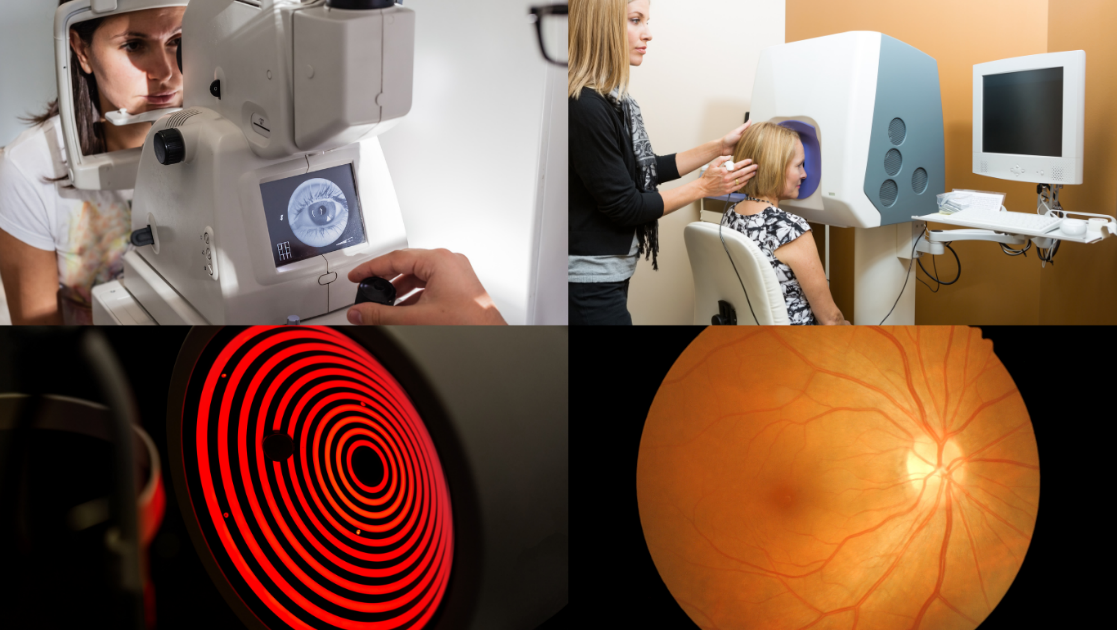How Much Does An Eye Exam Cost In Calgary?
If you are wondering, "How much does an eye exam cost in Calgary?"—you are not alone. At Mountain View Optometry, we understand the importance of clarity in both your vision and your costs. Let us take a look at what eye exams typically cost, what affects the price, and why regular check-ups are so important for our community.
Calgary Eye Exam Cost
The cost of an eye exam in Calgary ranges between
$60 and $230. The price depends on several factors, such as the clinic, technology and equipment used, the type of eye exam, age, OD experience, time allotted for the exam, staff training, and customer service.

Optometrist's Experience (OD Experience)
- More experienced optometrists, often with additional certifications, specialized training, or a well-established practice, tend to charge higher fees. They may be able to provide more comprehensive exams, offer advanced diagnostic tools, or have the expertise to manage complex eye conditions.
- Their reputation and years of experience can also allow them to set a higher price point
Type of Eye Exam
- Medically Indicated Visits: may be partially or fully covered by AHC depending on what's needed.
- Comprehensive Eye Exams: These go beyond just checking for vision correction. They include a series of tests to evaluate the overall health of your eyes, looking for signs of conditions like glaucoma, cataracts, diabetic retinopathy, and macular degeneration. These exams often use advanced diagnostic tools and take more time, making them more expensive.
- Specialized Exams: If you have specific concerns or conditions (e.g., contact lens fitting, pre- or post-surgical assessments), these may require additional tests and time, increasing the cost.

Facilities
- The quality and location of the clinic or optometry office play a significant role. A modern, well-equipped clinic with state-of-the-art diagnostic tools (such as OCT machines, retinal cameras, or visual field testing equipment) will generally have higher operational costs.
- Clinics located in high-demand, central, or upscale areas in Calgary might also charge more due to rent and overhead expenses.
Technology and Equipment
- Advanced Diagnostic Tools: Clinics that invest in the latest technology, such as digital retinal imaging, optical coherence tomography (OCT), and corneal topography, can provide more detailed assessments. However, the use of such equipment often incurs higher fees.
- Basic Equipment: Clinics that use standard equipment for basic exams may have lower costs. The trade-off is that they might not be able to detect certain conditions as early or as accurately.

Staff Training
- The expertise and level of training of the supporting staff, such as optometric technicians, assistants, or receptionists, can impact the cost of an exam. Clinics that invest in advanced training (e.g., using advanced technology, keeping staff up to date on the latest vision research and techniques) can provide higher-quality exams and services.
Time Allotted for the Exam
- A thorough, comprehensive eye exam that includes more time for consultations, testing, and detailed follow-up could cost more than a quick, standard exam.
- More time allows the optometrist to check for a wider range of eye conditions, perform additional tests, and offer more tailored advice, which increases the overall cost of the service.
Customer Service
- Clinics that offer more personalized care, easier booking systems, follow-up services, or other customer-centred services may charge higher rates.
- Practices with strong customer service often have better retention rates and patient satisfaction, which can lead to higher demand and potentially higher fees to reflect the added value.
Age and Health Status
- Children and Seniors: Alberta Health Care covers annual eye exams for children (under 19) and seniors (65 and older). This coverage includes tests for vision and eye health, recognizing the importance of regular eye care for these age groups. In the last two decades, Alberta Health Care has not increased its coverage for eye exams. As a result, many optometry clinics now charge additional fees to cover enhanced services that go beyond the basic exam.
- Medically Necessary Exams: Adults between 19 and 64 may also have coverage if the eye exam is medically necessary, such as for diagnosing or managing conditions like glaucoma, diabetes-related eye issues, or eye injuries.
Why Are Regular Eye Exams Important?
Even if your vision seems perfect, regular eye exams are essential for maintaining eye health and overall well-being. Here's why:

Early Detection of Refractive Errors
Refractive errors like nearsightedness (myopia), farsightedness (hyperopia), and astigmatism can develop subtly over time. Symptoms might not always be noticeable until they significantly impact daily life. Regular eye exams ensure that any changes in your vision are promptly identified and corrected with glasses or contact lenses, improving your quality of life.
Detection of Eye Diseases
Many serious eye conditions, such as glaucoma, cataracts, and macular degeneration, can develop without noticeable symptoms in their early stages. Regular eye exams allow for the early detection of these conditions, which can be crucial for effective treatment and prevention of vision loss.
- Glaucoma: This condition can damage the optic nerve and lead to irreversible vision loss if not treated. Regular exams can help detect it early, often before significant vision changes occur.
- Cataracts: These cause the lens of the eye to become cloudy, leading to blurry vision. Early diagnosis can lead to timely treatment or surgery.
- Macular Degeneration: Affects the central vision and can significantly impact daily activities. Early detection can help manage and slow its progression.
Overall Health Monitoring
Eye exams can sometimes reveal signs of other health issues. For example:
- Diabetes: Changes in the blood vessels of the retina can indicate diabetes, sometimes even before a diagnosis is made.
- High Blood Pressure: Hypertension can cause changes in the blood vessels in the eyes, and these changes can be detected during an eye exam.
Skipping regular eye exams might result in undiagnosed conditions worsening over time. Early intervention often leads to better outcomes and helps prevent minor issues from becoming major problems.
Where Can You Get an Eye Exam in Calgary?
When it comes to eye exams in Calgary, there are mainly two options available:
- Private Optometry Clinics: Offering comprehensive care with advanced technology.
- Retail Optical Stores: Many chain stores provide eye exams services.
Tips for Reducing the Cost of Eye Exams in Calgary

Check for Direct Insurance Billing
- Ensure that your optometrist offers direct billing to your insurance provider, as it can reduce out-of-pocket costs. Many insurance plans cover a significant portion or all of the cost of eye exams.
Use Extended Health Benefits
- Review your employer’s health benefits or private health insurance to see what’s covered. Some plans may cover regular eye exams, glasses, and contact lenses.
Inquire About Senior and Child Coverage
- There is coverage available towards certain groups under AHC. Make sure to utilize this coverage if it applies to you or your family members.
Ask About Payment Plans
- If cost is a barrier, ask your optometry clinic whether they offer payment plans or financing options for eye exams and related services.
For Calgarians looking to do a
comprehensive eye exam, Mountain View Optometry stands out as a premier choice. Our clinic is known for its in-depth eye examinations that go beyond just checking your vision. Take the first step toward better eye health—book your eye exam at Mountain View Optometry now!

Written by Rosendo
About the Author:
Rosendo was born and raised in Havana, Cuba, where he began his professional journey studying Optometry and Optics. His career then took him to Dubai, where he worked in the optical field for two years as a Sales Associate. Now, he’s settled in Calgary and takes great pride in being a valued member of our Mountain View Optometry team as an Optical Associate.










